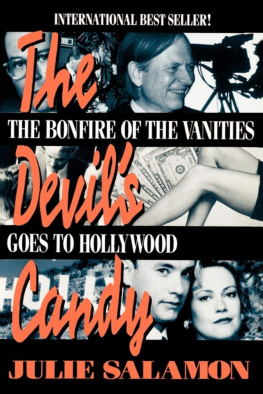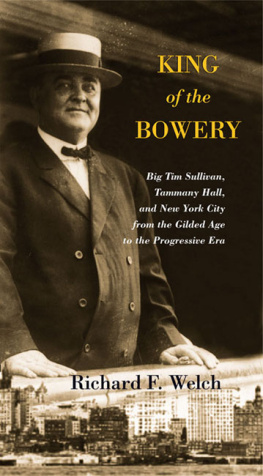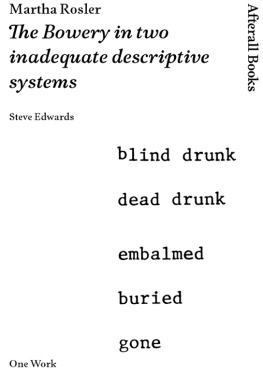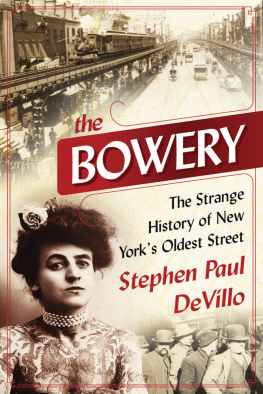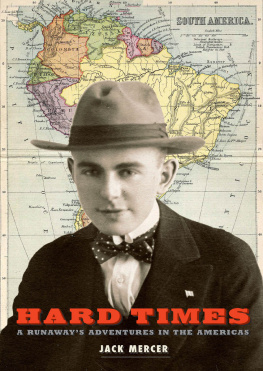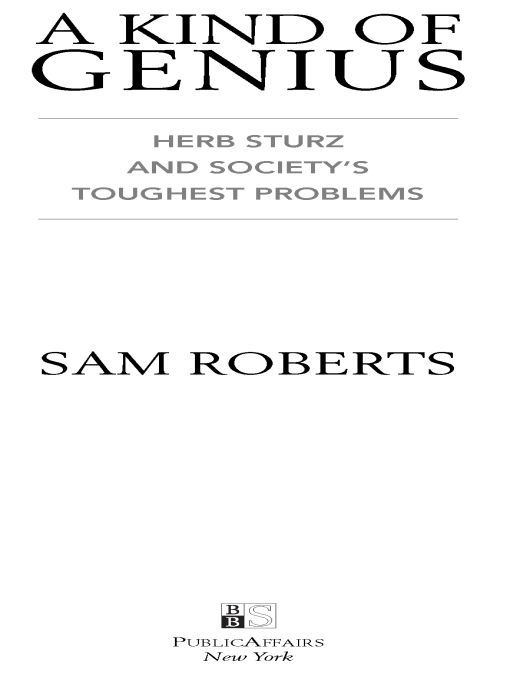Table of Contents
For Mike and Will:
The future is theirs to define
Prologue
Herbs
Children
Imagine that youre a graduate student at Columbia Teachers College in 1953 majoring in American literature. Youve advanced an unconventional interpretation of The Grapes of Wrath, John Steinbecks saga of poor and oppressed migrants during the Great Depression. In contrast to a decades worth of literary critics, youve embraced the books undervalued but lyrical inner chaptersthose metaphorical ruminations on earth-gouging tractors and on devastating drought and especially the one about the indomitable land turtles precarious crossing of a treacherous Dust Bowl highwaychapters that endow with epic dimensions and greater purpose a novel that youve just audaciously claimed as your personal manifesto. The professors sole critique of your hand-written paper dismissively focuses on form rather than content: Lines not parallel to top edge of paper.
The young student was disappointed by his professors criticism, but not discouraged. He sought a second opinion directly from the source: John Steinbeck himself. He wasnt just seeking vindication when he wrote to the Nobel Prize-winning novelist, although that would have been sweet. Above all, Herbert Sturz, the tenacious son of a New Jersey saloonkeeper, was constitutionally unable to accept dogma, from an English professor or any other so-called expert, and he was acutely curious about getting to the bottom of any intellectual argument. When Steinbeck answered Sturz, he did so in a poignant essay handwritten on a yellow legal pad, like the original 200,000-word manuscript of The Grapes of Wrath itself fourteen years ealier.
You say the inner chapters were counterpoint and so they werethat they were pace changes and they were that, too, but the basic purpose was to hit the reader below the belt, John Steinbeck wrote. You are the first critical person who seems to have suspected that they had a purpose.
Critics, Steinbeck continued, have a curious view of writing, an egomaniacal image of authors groping their way up the staircase of immortality. Writing, by itself, without any illusions of imperishability, is tough enough. Most good writers I know, Steinbeck concluded, have no time for immortality.
Herb Sturz embraced the great novelists response as inspiration, as a personal invitation to a lifelong odyssey through the labyrinthine corridors of power and as an opportunity to ameliorate poverty and injustice. It would inspire him not only to write but also to give voice, as Steinbeck had, to the voiceless, to couple the journalists probing curiosity and irreverence with the novelists utopian vision. Unlike Steinbeck, however, Sturz would help fashion happier endings than otherwise might have been.
He was, Sturz says of Steinbeck, the first person to take me seriously, and so, I took myself a little more seriously, gained some self-confidence.
Throughout his life, Herb Sturz has been taken seriously by commissioners, judges, mayors, presidents, publishers, philanthropists, scientists, by individuals addicted to drugs and alcohol, crime victims, convicts, bankers, builders and homeless people. Many of the people whose lives Sturz has altered were those with no grasp on power. Or they were people with power they didnt know they had.
Largely as a supplicant seeking financial and political support, Sturz tinkered with, tweaked and finally helped revolutionize bail and other aspects of the criminal justice system, from the outside. As an innovator from inside, he turned government into a vehicle for reform. And, later, he returned to the private sector, first as a critic, then in the trenches again and finally in his most uncharacteristic role, as a benefactor, working for one of the richest men in the world. In every incarnation, he hewed to the same values, and was driven by the same strategyto lead himself and lure others through imagination.
Most people have never heard of Herb Sturz, even though their lives have likely been touched in some way by his take on societys toughest problems. For more than a half century, Sturz has been largely an unsung hero, a shrewd social engineer and social entrepreneur without a rigid ideological agenda. Armed instead with mastery of process and human nature, of means and motive, of intellect and emotional intelligence, Sturz has profoundly altered the public perception of fundamental issues, has improved the way things get done and made government work more smoothly. As if armed with a divining rod, he could find funding streams in the public and private sectors and combine them to power his visions. And he could intuitively discover and nurture hidden talents that other people rarely knew they had.
As he fostered change, the breadth of the challenges Sturz has tackled, the power of his ideas to reorder the nations agenda, the scope of his ability to replicate solutions across the United States and in countries as diverse as Chile, South Africa, Britain and Russia, are virtually without parallel. Peter Goldmark Jr., a former president of the Rockefeller Foundation, has called Sturz the best social engineer in America.
Gara LaMarche, the president of the Atlantic Philanthropies, sees Sturz as the archetypal social entrepreneur and as living proof that public policy is a realm where you can have a certain creativity, almost genius.
Aryeh Neier, the president of George Soross Open Society Institute, says Sturz has made an enormous difference assisting marginalized people.
George Soros, the financier and global philanthropist, has attributed Sturzs effectiveness to his ability to work with, rather than against, any given system. As Soros puts it, People with ideas tend to be worn down. He makes the system achieve complete objectives.
Thats because ideas, to Sturz, are only the beginning. He would never isolate himself in an ivory tower. The great vice of academicism, the literary critic Lionel Trilling wrote, is that it is concerned with ideas rather than with thinking.
One of Sturzs underlying principles, according to Jack Rosenthal of the New York Times, one of his oldest friends and colleagues, is using nonprofit, private and even governmental pilot programs and experiments to prove out remedies for wrongsand using the proof to achieve government funding at scale.
Some people start with the position that government doesnt work because they dont want it to work, Sturz says. I had nine years in government. You can do an enormous amount. But to effect real change, why would you expect government to do it alone?
Sturzs record is laudable not solely on the basis of accomplishment, but also given the constraints of the times in which he achieved success. Describing the almost languid decade of the 1950s, David Halberstam wrote: As younger people and segments of society who did not believe they had a fair share became empowered, pressure inevitably began to build against the entrenched political and social hierarchy.... One did not lightly challenge a system that seemed, on the whole, to be working so well. Sturz challenged that system and not lightly. Not head first, perhaps, but strategically. And, considering the political and temperamental and ideological impediments aligned against him, by design or just because that was the way things were and always had been, the results he achieved are all the more astonishing. Even by the beginning of the 1960s, it was still tough to persuade policy makers, to say nothing of their constituents, that many Americans were being denied justice only because they were poor or that alcoholics deserved to be treated as victims not criminals. Those policy makers might have known their own jobs, to one degree or another, but few of them understood the system. Some wouldnt even talk to one another. Sturz remembers Frank Hogan, the Manhattan district attorney in the 1960s, rarely meeting with judges and defense lawyers because he considered such contact professionally inappropriate.



